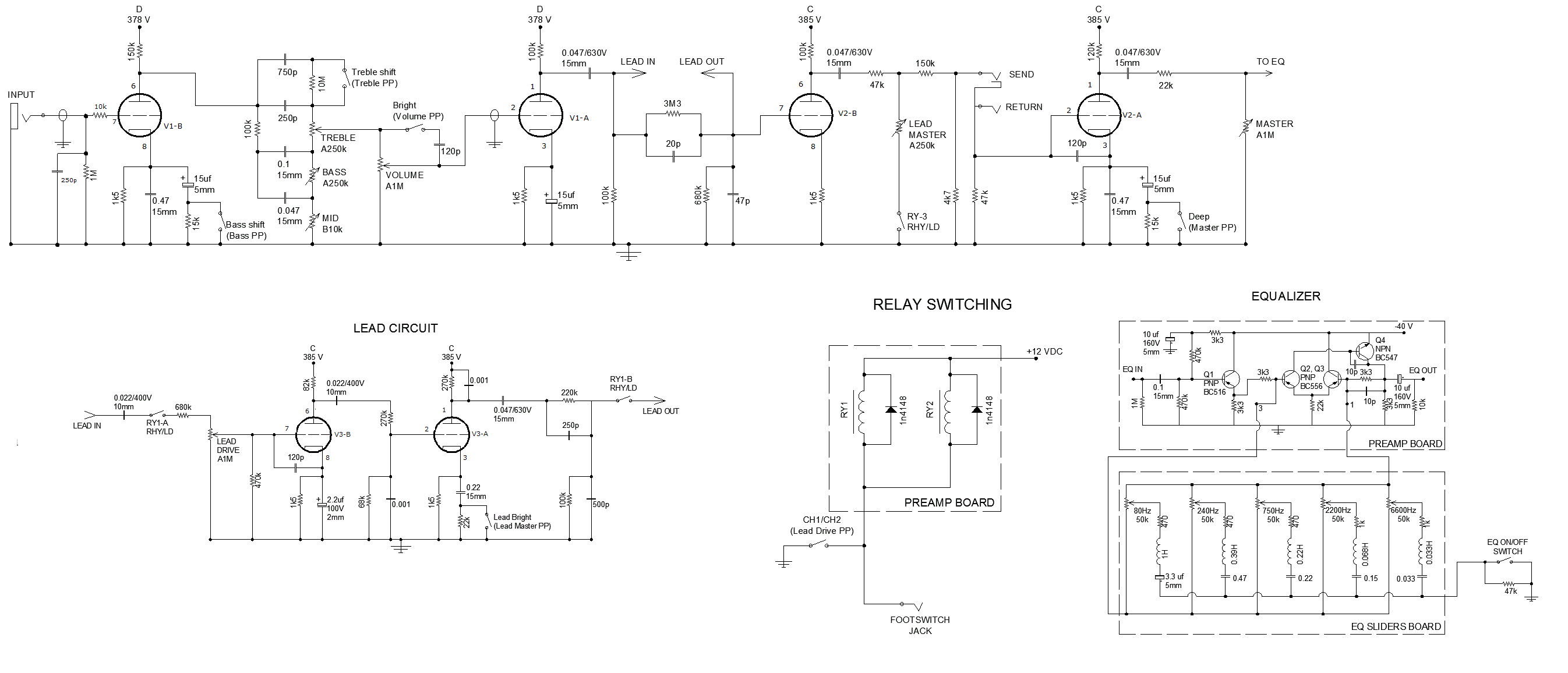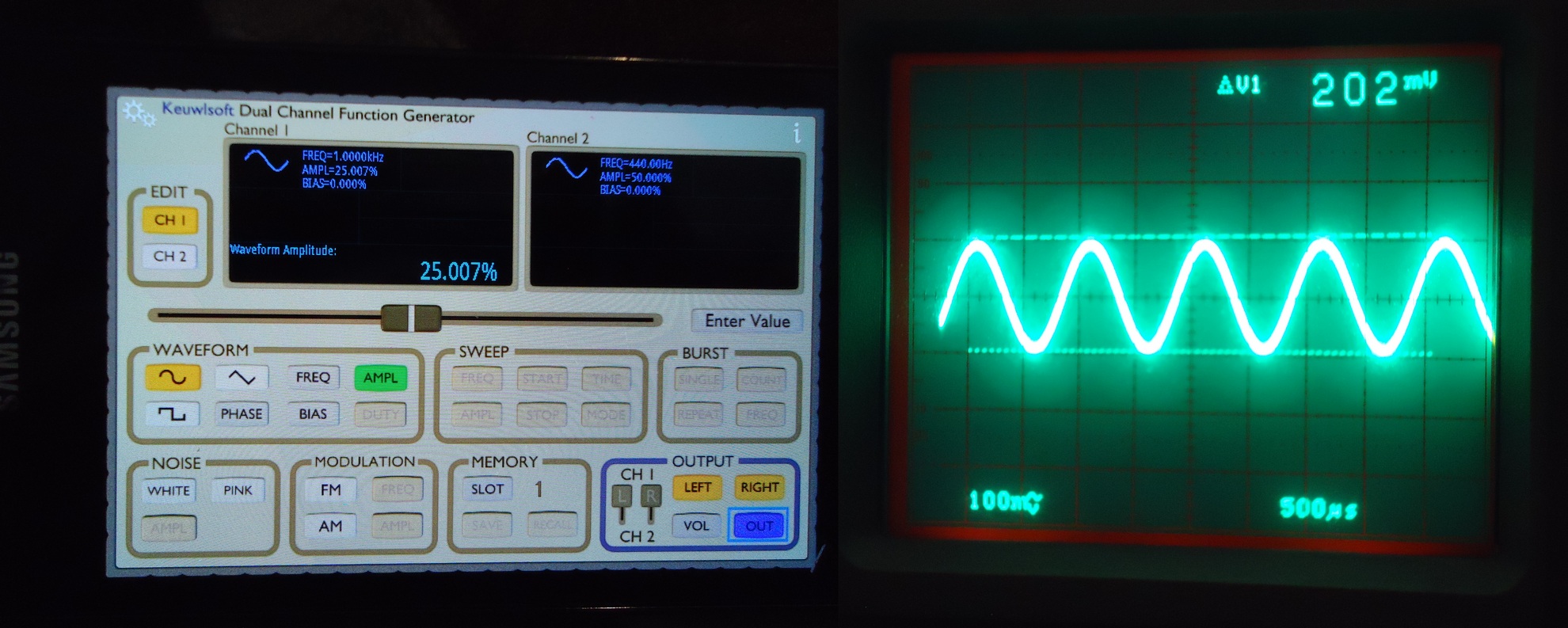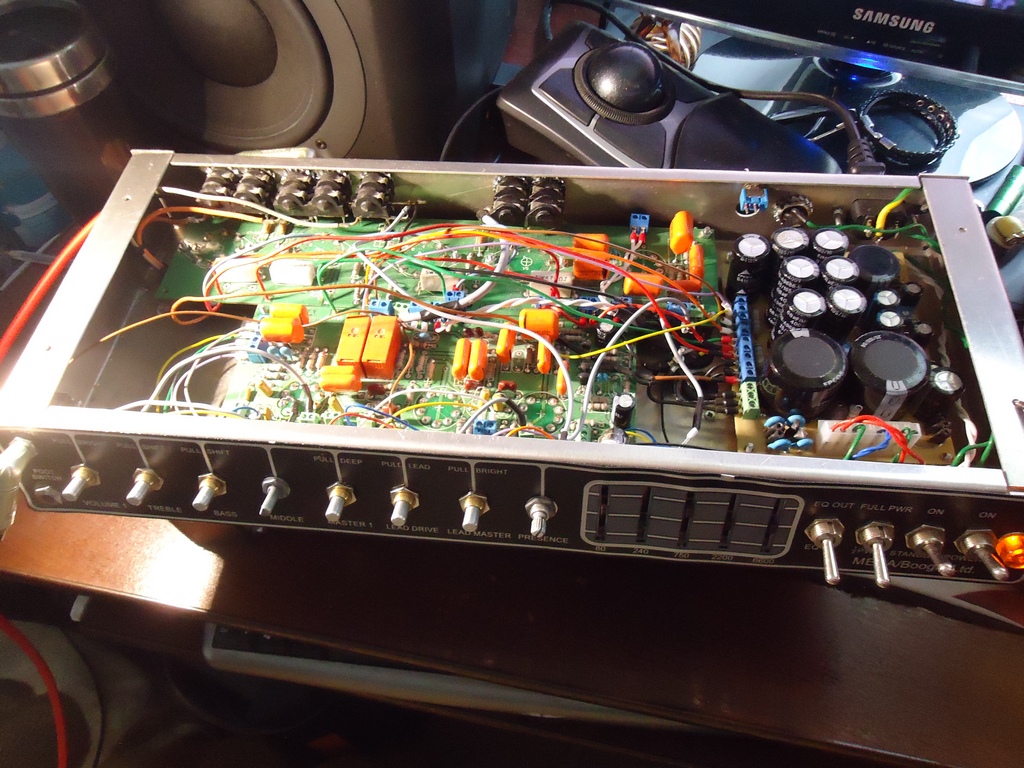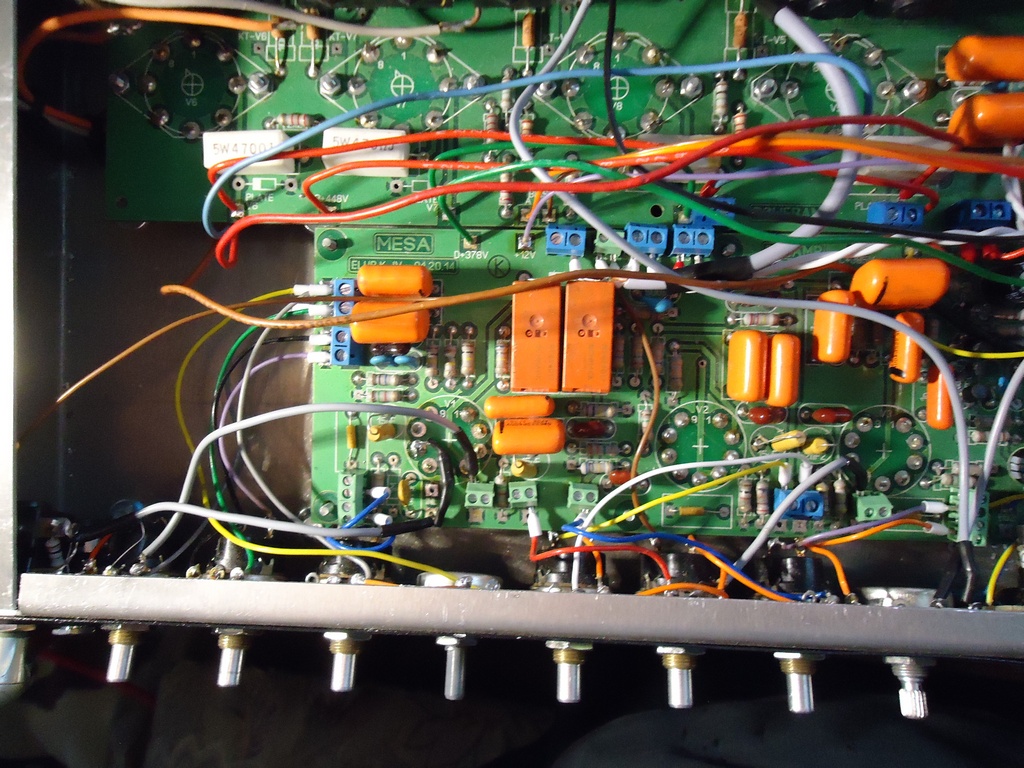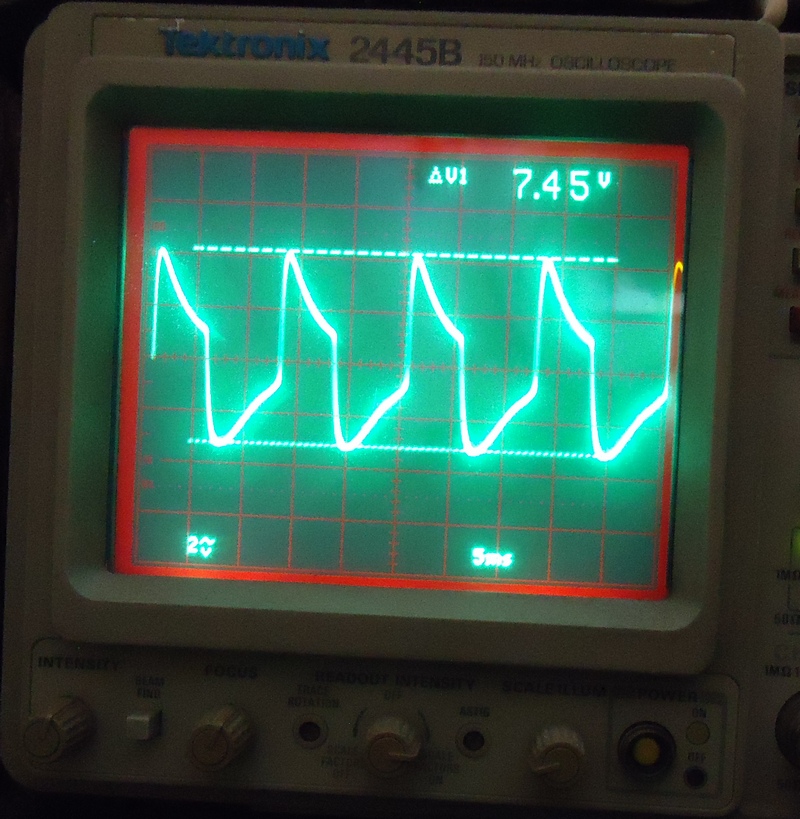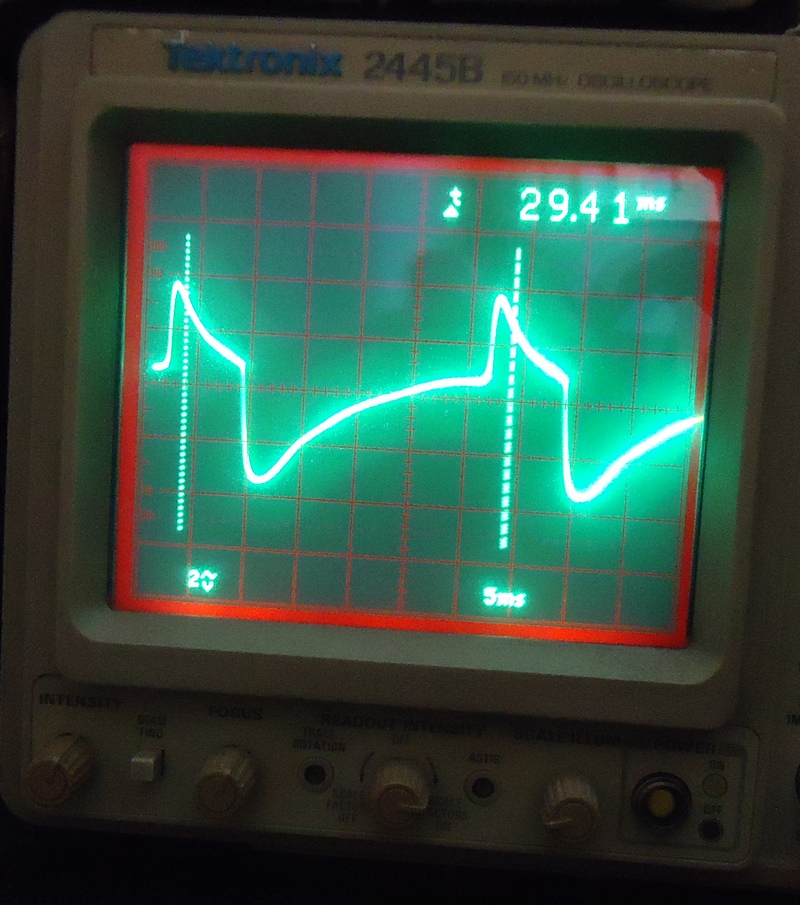Phil smith
Active member
Hey guys!
I've bee building mesa boogie mark IIc+ clone for a while. Now I've completed all wiring job, turned it on and found that 1st stage (V1-a, see circuit diagram) is oscillating like hell at 50Hz (directly on pin 1). There also 50 Hz ~1V p-p distorted sine is present on the cathode of this stage (pin 3). Test signal - 200mV p-p sine from the signal gen into the input jack.
Here's an interesting part - I can eliminate the oscillation either by turning treble control all the way right or activating "Bass shift" function which just simple bypasses 15k resistor in the cathode circuit.
I tried to swap preamp tubes but result is still the same.
So any clues what can cause this problem?
Appreciate any help!
Circuit diagram:
https://app.box.com/s/fp7y3y7zetsj41vx5mz2o8s3veivesgj
PS. All power circuit after EQ works hunky-dory, so I just disconnect power amp input after the EQ stage.
PS. PS. Should mention before - V1 is on 12VDC filament supply.
Regards,
Phil
I've bee building mesa boogie mark IIc+ clone for a while. Now I've completed all wiring job, turned it on and found that 1st stage (V1-a, see circuit diagram) is oscillating like hell at 50Hz (directly on pin 1). There also 50 Hz ~1V p-p distorted sine is present on the cathode of this stage (pin 3). Test signal - 200mV p-p sine from the signal gen into the input jack.
Here's an interesting part - I can eliminate the oscillation either by turning treble control all the way right or activating "Bass shift" function which just simple bypasses 15k resistor in the cathode circuit.
I tried to swap preamp tubes but result is still the same.
So any clues what can cause this problem?
Appreciate any help!
Circuit diagram:
https://app.box.com/s/fp7y3y7zetsj41vx5mz2o8s3veivesgj
PS. All power circuit after EQ works hunky-dory, so I just disconnect power amp input after the EQ stage.
PS. PS. Should mention before - V1 is on 12VDC filament supply.
Regards,
Phil



